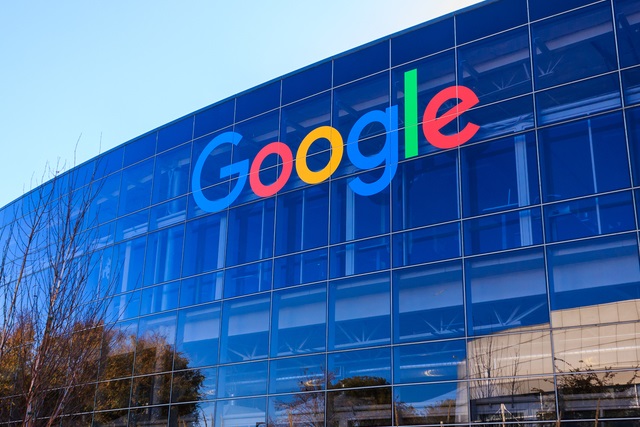
Drive File Stream launches for G Suite users as Google kills off its Drive software
Google is deprecating the Google Drive software for PC and Mac as it launches Drive File Stream. The company plans to support the cloud storage software for just three more months before killing it off completely in six months.
Starting in October, Drive users will begin to be shown messages informing them that their software is going away. Users with both Drive File Stream and Backup and Sync will be prompted to stop syncing My Drive with the latter. It's a move from Google that is likely to cause confusion among users.
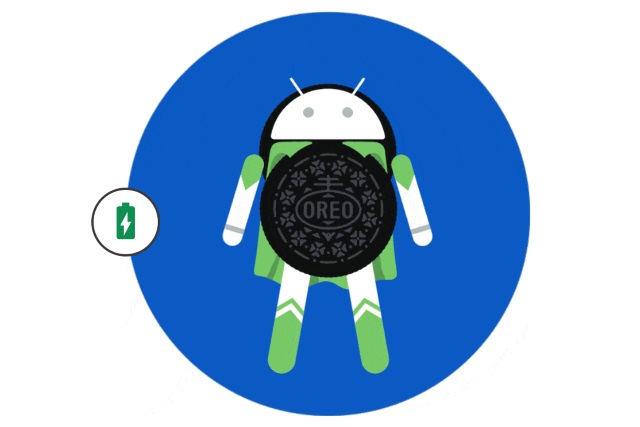
Android Oreo could eat through your data allowance even if you have Wi-Fi enabled
An apparent bug with Android Oreo has been discovered which means Google's mobile operating system could be munching its way through your data allowance, even if you're connected to a wireless network.
A thread on Reddit highlighted the issue, with many people pointing out that it could prove expensive for anyone not using an unlimited data plan. Google is apparently aware of the problem and is working on a patch, but in the meantime Oreo users are being warned to consider disabling mobile data when they are at home or using a wireless connection elsewhere.

Xiaomi Mi A1 runs stock Android, features dual 12MP camera
Xiaomi has become one of the largest smartphone manufacturers thanks in part to its approach to customizing Android. MIUI, its distribution, is a significant departure from what is commonly referred to as "stock Android," which is the version that Google ships on its Pixel line of smartphones, packing lots of added features and a heavy theme.
Its new Mi A1 is different. This is Xiaomi's first smartphone running stock Android, and it is also its first entry in the Android One program. It is not, however, an entry-level device, as it features faster and better hardware than what we've seen so far in the Android One landscape.

'It is time to return to not being evil': Opera and Vivaldi founder accuses Google of 'misuse of power'
The founder of the Opera and Vivaldi web browsers, Jon von Tetzchner, has lashed out at Google in a vitriolic blog post in which he accuses the search giant of a "misuse of power." He says that Opera helped Google to grow and that it didn’t take long for the company to expose its dark side.
He complains that despite the fact that Vivaldi is based on Chromium, the web browser has to hide its real identity in order to work with Google Docs. He also suggests that his Google AdWords campaigns were suspended after he gave interviews in which he described Google as being a threat to democracy. von Tetzchner is not a happy man, and he has a simple message for Google: "it is time to return to not being evil."

How to disable a touchpad on a Chromebook
Using a Chromebook and having problems? You aren't the only one. In the middle of typing, your cursor can jump to the center of another sentence or jumble all of your words. It's not only annoying, it can get confusing to fix. What you need to do is disable the touchpad.
On some Windows PCs there's a simple solution that involves pressing a key at the top. That isn't the case with Chrome OS. It can be done, it just takes a bit more work to accomplish the goal.

Will my phone get Android 8.0 Oreo?
If there's one thing that the release of a new version of Android highlights, it's Android's fragmentation problem. While iPhone users can be sure of receiving iOS upgrades for a number of years, it's more of a gamble when it comes to Google's mobile operating system.
The number of handsets that will receive an Oreo upgrade is relatively small, so the chances are that the answer to the question posed in the headline is "no". That said, there are many phones that will get the update to Android 8.0 -- so here's the list.
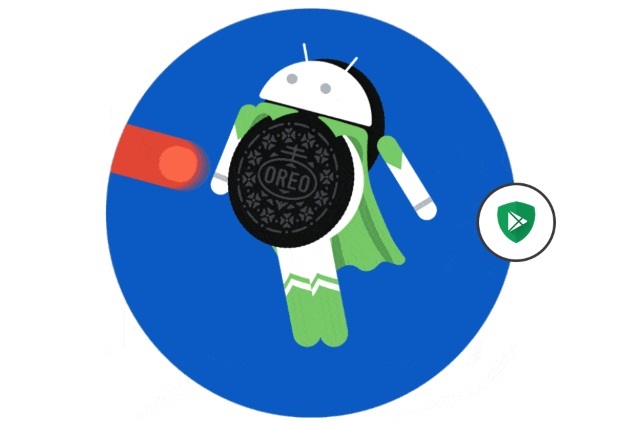
With Android Oreo, Google is introducing Linux kernel requirements
Android may be a Linux-based operating system, but the Linux roots are something that few people pay much mind. Regardless of whether it is known or acknowledged by many people, the fact remains that Android is rooted in software regarded as horrendously difficult to use and most-readily associated with the geekier computer users, but also renowned for its security.
As is easy to tell by comparing versions of Android from different handset manufacturers, developers are -- broadly speaking -- free to do whatever they want with Android, but with Oreo, one aspect of this is changing. Google is introducing a new requirement that OEMs must meet certain requirements when choosing the Linux kernel they use.

Google Play Protect branding to be added to certified Android devices
Google Play Protect is the company's latest attempt to prevent Android users from being tricked into installing malware or insecure apps. As an extension of this, Google is introducing a branding program that will see the Google Play Protect logo added to certified Android devices.
The certification of Android phones and tablets is not a new concept -- it's something that Google has been doing for a while. But the new branding on packaging will help buyers identify devices that Google has approved, and it should also encourage more manufacturers to submit their hardware for certification.

YouTube rolls out redesign and unveils new logo
Redesigns are tricky beasts, almost inevitably dividing opinion and leading to questions about why things couldn't have just been left alone. Running the risk of a double whammy of complaints, YouTube has rolled out not only a redesign of its sites, but also a brand new logo.
Both the desktop and mobile versions of YouTube have been treated to a new look. It's the redesign that has been beta tested on users for a few months, and with a few extra tweaks, the company is ready to give everyone access to it. While a fresh lick of paint for the site and apps was expected, the new logo is rather more of a surprise.
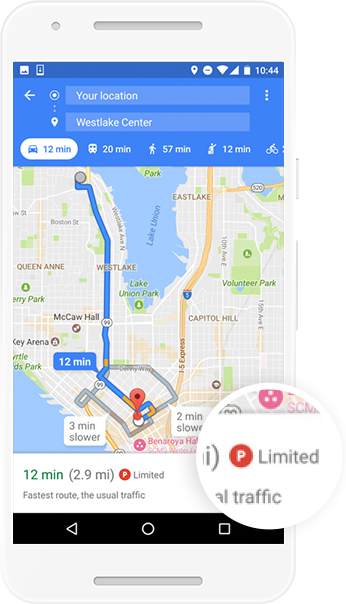
Google Maps will now help you find a parking space
When you head away on your travels, we always recommend hiring a car to find the best locations and get away from the tourists. But, hiring a car and driving around a new city can be time-consuming and stressful when you look for a location to park your car.
We’re not sure about everyone else, but we have a tendency to over-rely on the fantastic Google Maps and/or Waze when travelling as both apps will direct you to your destination, usually offering the quickest method available, whilst you focus on your driving.

Google shows love to those affected by Hurricane Harvey
Hurricane Harvey has proven to be quite the devastating storm for Texas. The flooding and high winds have damaged property, but even worse, it has caused injuries and fatalities too. Yes, people actually died as a result of Harvey -- heartbreaking. Remember, folks, you can replace belongings, but not your life. Here at BetaNews, our thoughts and prayers are with the families and friends of the deceased.
Thankfully, many people and organizations are donating both money and resources to help those affected by the hurricane. One of those businesses, Google (which has 450 employees in Texas), is stepping up in a big way. The company is donating $250,000 plus matching employee donations up to the same amount. When the company's donations are added to its employee donations, it could potentially be more than $750,000 when all is said and done. Money aside, the search giant is leveraging its technologies to spread information and assist where needed, such as with its SOS Alerts on search results and a specialized "Harvey Crisis Map."

The Google Lunar X-Prize wasn’t extended, it was ENDED
Google recently extended its Google Lunar X-Prize deadline to March 31, 2018, apparently giving the five remaining teams a little longer to vie for the $20 million top prize. But there’s a mystery here that suggests two vying reasons for the change -- one sincere and the other cynical. The final answer may turn out to be a combination of both.
The Google Lunar X-Prize was announced in 2007, giving teams five years to put their landers on the Moon and drive around, sending back live HD video of the action. Though 30 teams eventually signed-up, none of them made it to the Moon by 2012. Or 2013, 2014, 2015, 2016, or so far in 2017.
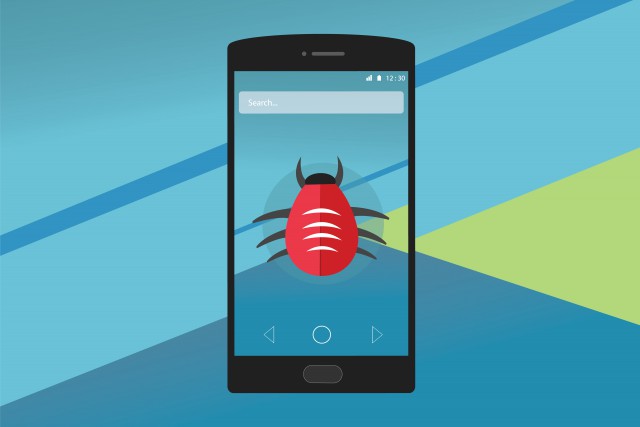
Google Play apps spread malware through advertising SDK
Through the use of an advertising software development kit contained in 500 apps on the Google Play Store, cybercriminals were able to spy on users and even infect their mobile devices with malware.
That's according to security firm Lookout, which discovered that the Android apps in question all had the lgexin ad SDK built into them which gave unauthorized third parties access to user devices.

How to add Google Maps search engines to Chrome
To make it quicker to perform searches using Google Maps, you might want to consider adding the site as a search engine in Chrome. This will save you having to manually visit the site before you start a search, and it's a pretty neat option.
In fact, we’re going to show you how to add Google Maps to Chrome as a search engine in a couple of ways. The first is a simple option to look for a place on Google Maps. The second enables you to search for directions from your home address to your desired destination. Here's what you need to do.
When will Google launch the Pixel 2 and Pixel XL 2?
With the Pixel and Pixel XL on the market for nearly a year and Android 8.0 Oreo launched this week, it will not be long until Google takes the wraps off the second-generation Pixel smartphones. Question is, when can we expect the big announcement to be made?
Considering that Android 8.0 Oreo arrived one year after its predecessor, it is likely that Google will wait until early-October to unveil the Pixel 2 and Pixel XL 2. Last year, that's when it announced the first-generation. And a tweet from famous leaker Evan Blass lends credence to this theory.
